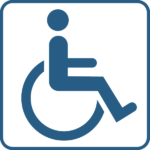

Fair Housing
Title VIII of the Civil Rights Act of 1968 (Fair Housing Act), as amended, prohibits discrimination in the sale, rental, and financing of dwellings, and in other housing-related transactions, based on race, color, national origin, religion, sex, familial status (including children under the age of 18 living with parents or legal custodians, pregnant women, and people securing custody of children under the age of 18), and disability. More on the Fair Housing Act
Boulder Housing Partners complies with all state and federal laws prohibiting discrimination. The City of Boulder’s Human Rights Ordinance protects against discrimination in Housing. The following are examples of actions by housing providers which are prohibited when based on membership in a protected class:
- Refusing to show, rent or sell;
- Charging higher rates to buy or rent;
- Asking for a larger or additional security deposit;
- Advertising a preference for a certain type of person to buy or rent a living unit;
- Denying access or use of the facility or service that is normally available with occupancy;
- Refusing to allow reasonable accommodations for an aide, service animal, parking, or physical modification.
If you believe your rights have been violated, call the Colorado Fair Housing Hotline at (303) 672-5437 or 1-800-877-7353.
Notice under The Americans with Disabilities Act
In accordance with the requirements of title II of the Americans with Disabilities Act of 1990 (“ADA”), Boulder Housing Partners will not discriminate against qualified individuals with disabilities on the basis of disability in its services, programs, or activities.
Employment:
Boulder Housing Partners does not discriminate on the basis of disability in its hiring or employment practices and complies with all regulations promulgated by the U.S. Equal Employment Opportunity Commission under title I of the ADA.
Effective Communication:
Boulder Housing Partners will generally, upon request, provide appropriate aids and services leading to effective communication for qualified persons with disabilities so they can participate equally in Boulder Housing Partners programs, services, and activities, including qualified sign language interpreters, documents in Braille, and other ways of making information and communications accessible to people who have speech, hearing, or vision impairments.
Modifications to Policies and Procedures:
Boulder Housing Partners will make all reasonable modifications to policies and programs to ensure that people with disabilities have an equal opportunity to enjoy all of its programs, services, and activities. For example, individuals with service animals are welcomed in Boulder Housing Partners offices, even where pets are generally prohibited.
Anyone who requires an auxiliary aid or service for effective communication, or a modification of policies or procedures to participate in a program, service, or activity of Boulder Housing Partners, should contact one of the Section 504 Coordinators listed below as soon as possible but no later than 48 hours before the scheduled event.
The ADA does not require Boulder Housing Partners to take any action that would fundamentally alter the nature of its programs or services, or impose an undue financial or administrative burden.
Complaints that a program, service, or activity of Boulder Housing Partners is not accessible to persons with disabilities should be directed to:
- For Property Management related complaints, please contact:
Elisa Torrez, Regional Property Manager, at 720-564-4654 or email at torreze@boulderhousing.org - For Housing Choice Voucher related complaints, please contact:
Karen Brunnemer, MTW and Federal Policy Director at 720-564-4631 or email at brunnemerk@boulderhousing.org - For employment related complaints, please contact:
Julia Arencibia, Human Resources Director at 720-564-4610
Boulder Housing Partners will not place a surcharge on a particular individual with a disability or any group of individuals with disabilities to cover the cost of providing auxiliary aids/services or reasonable modifications of policy, such as retrieving items from locations that are open to the public but are not accessible to persons who use wheelchairs.